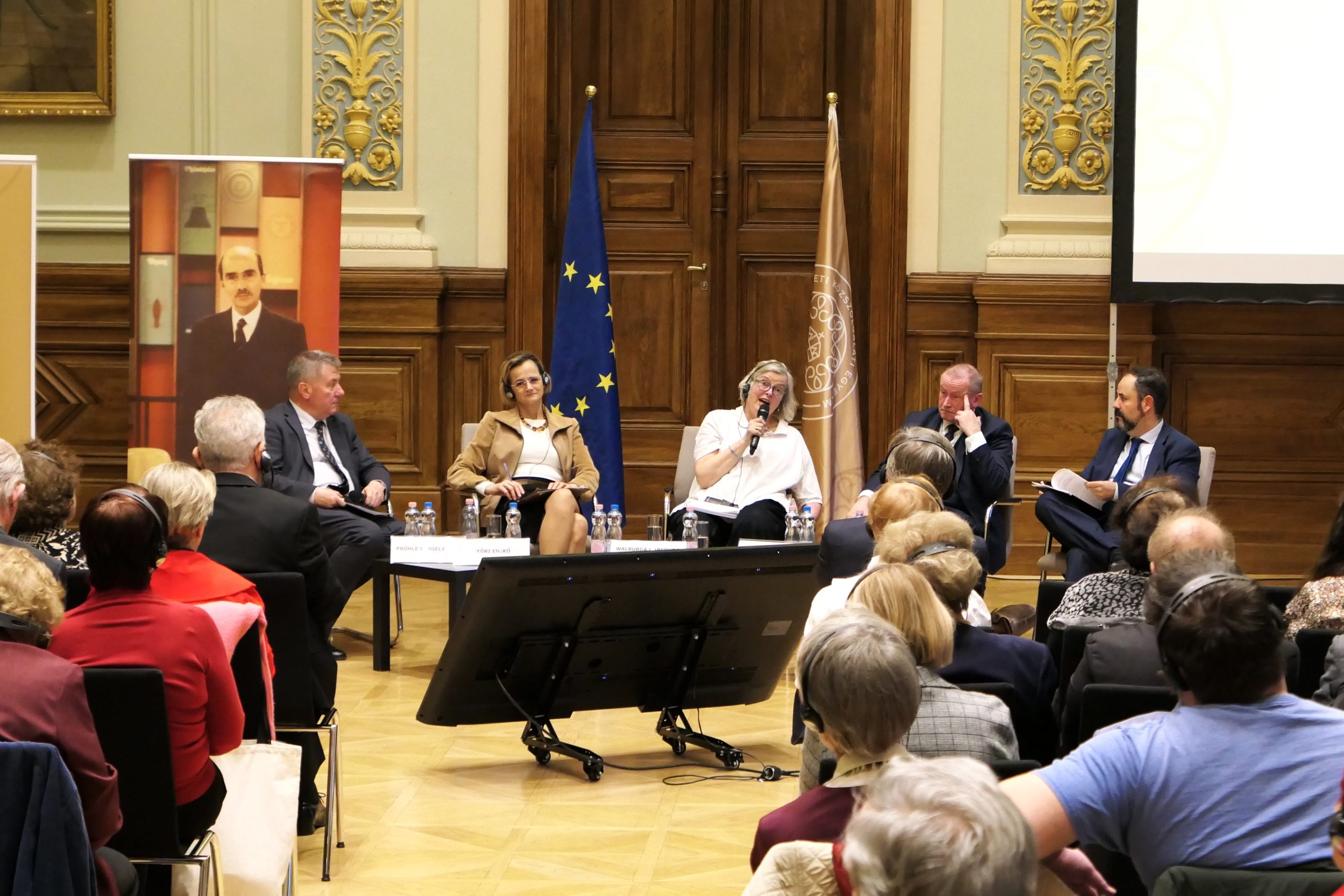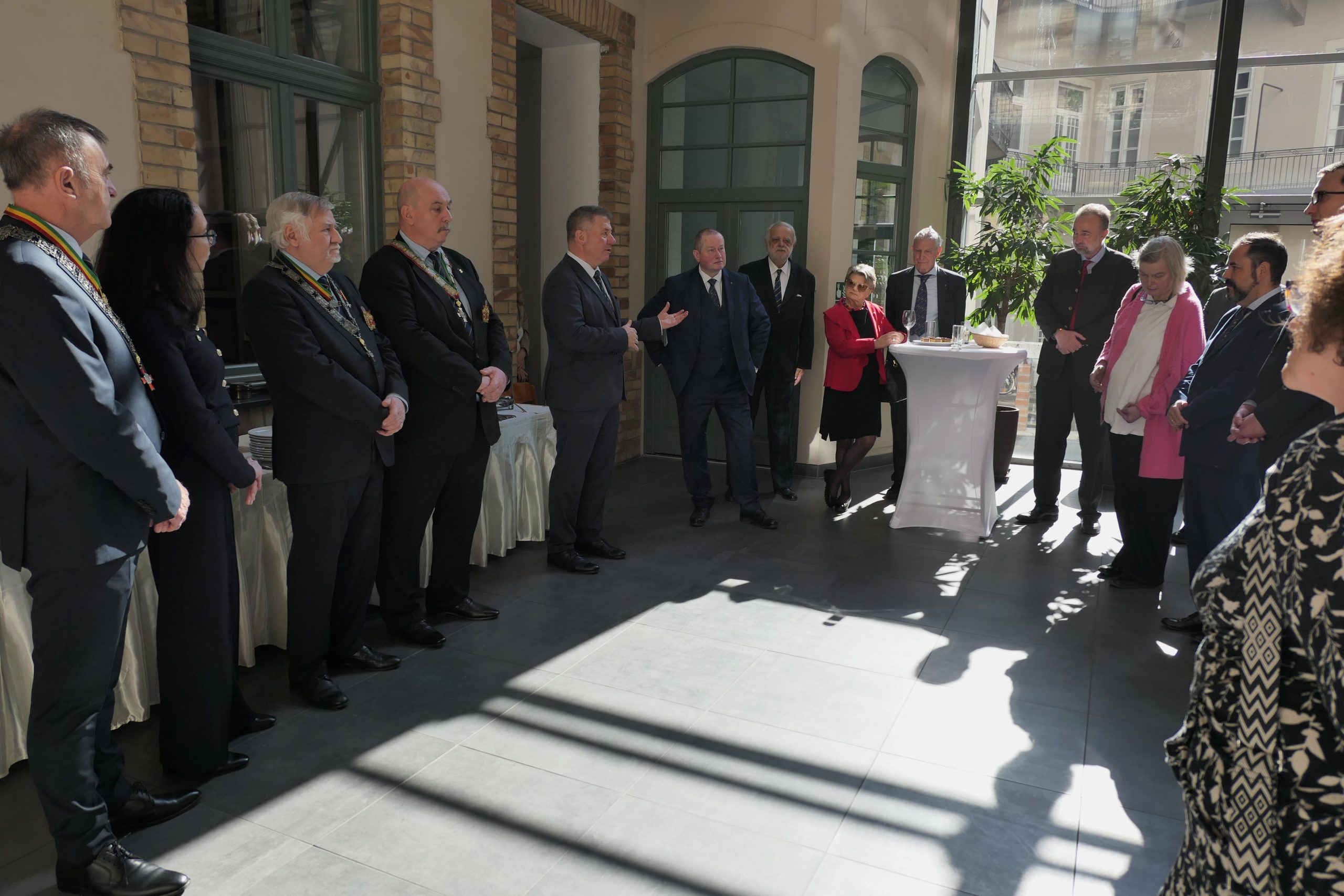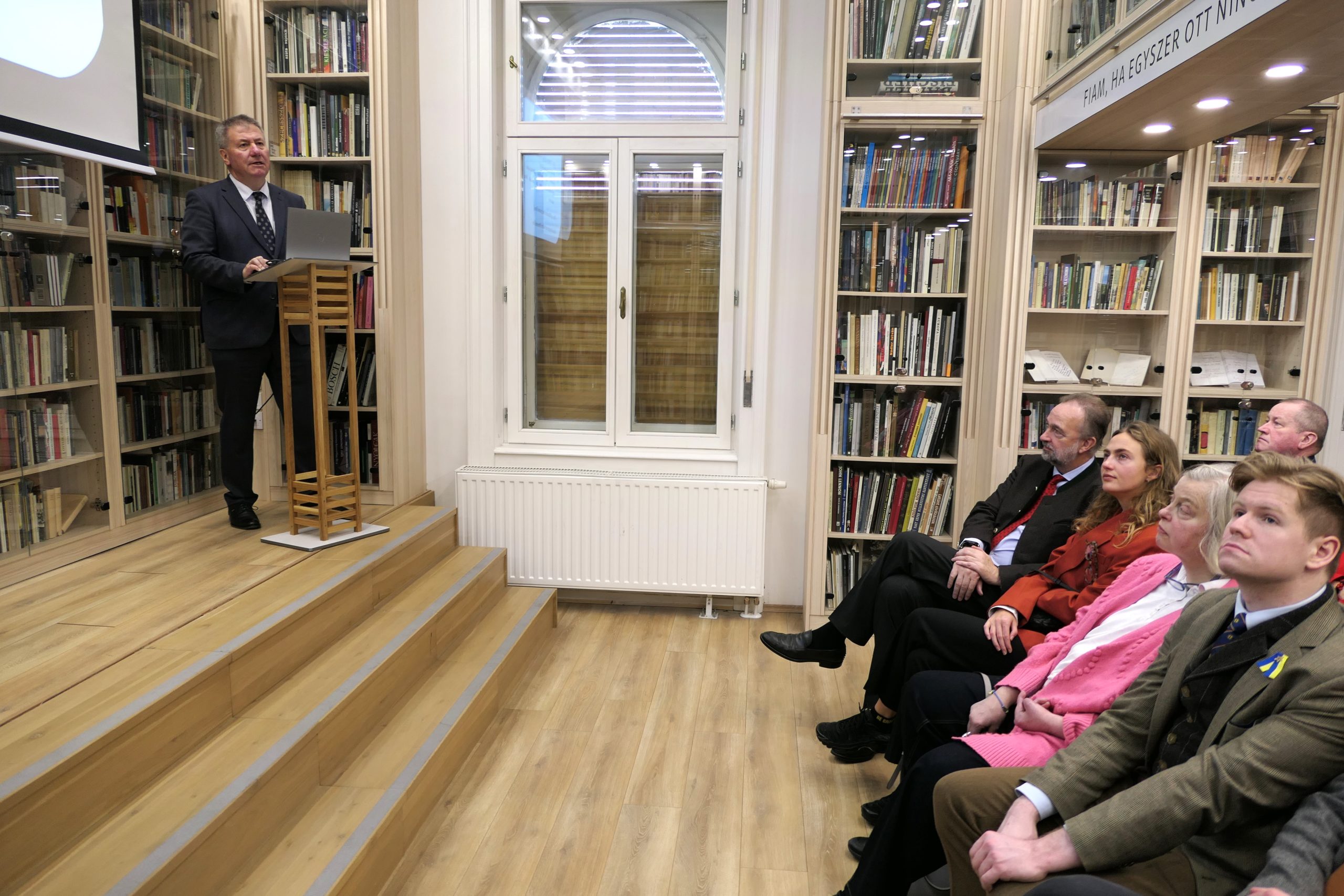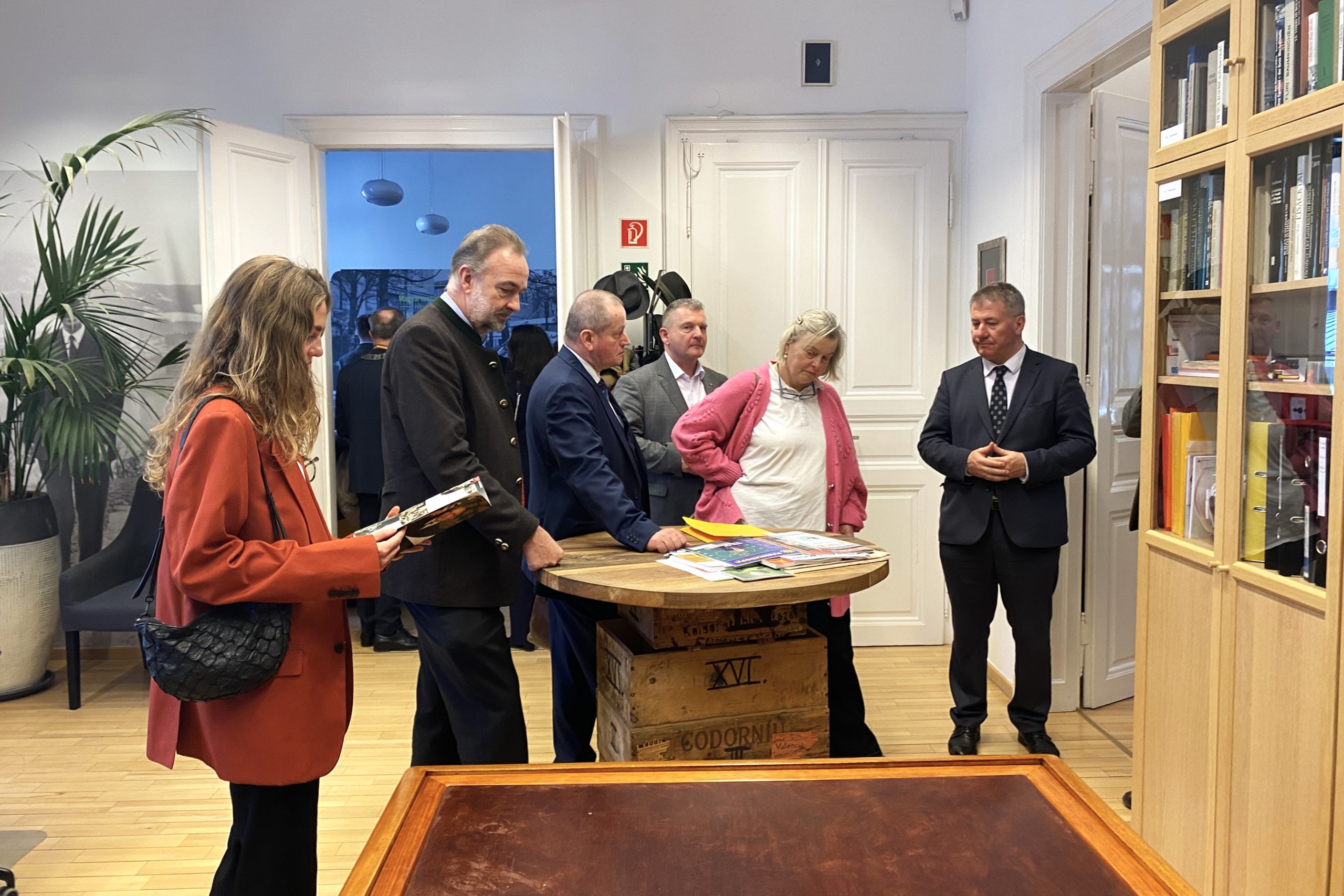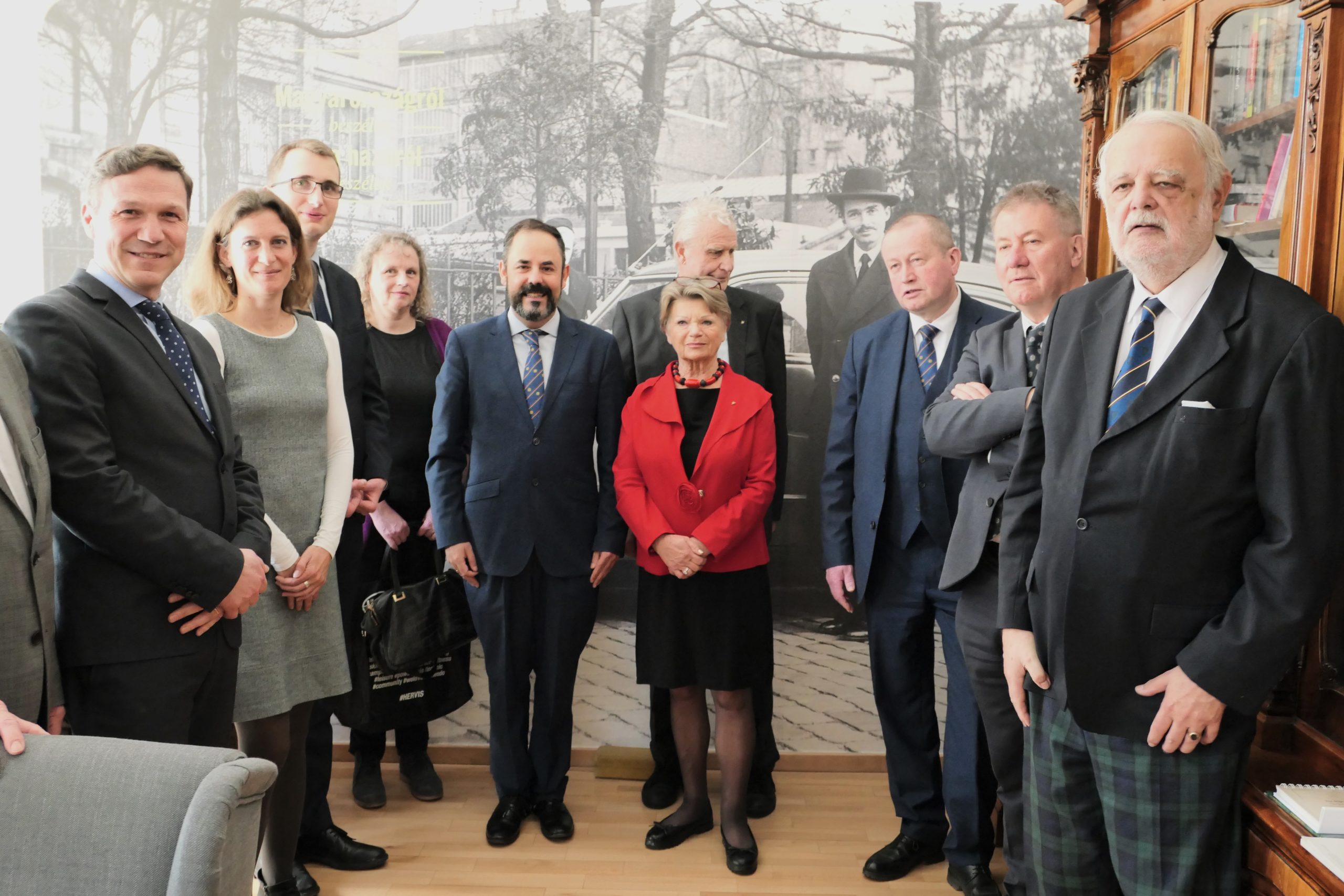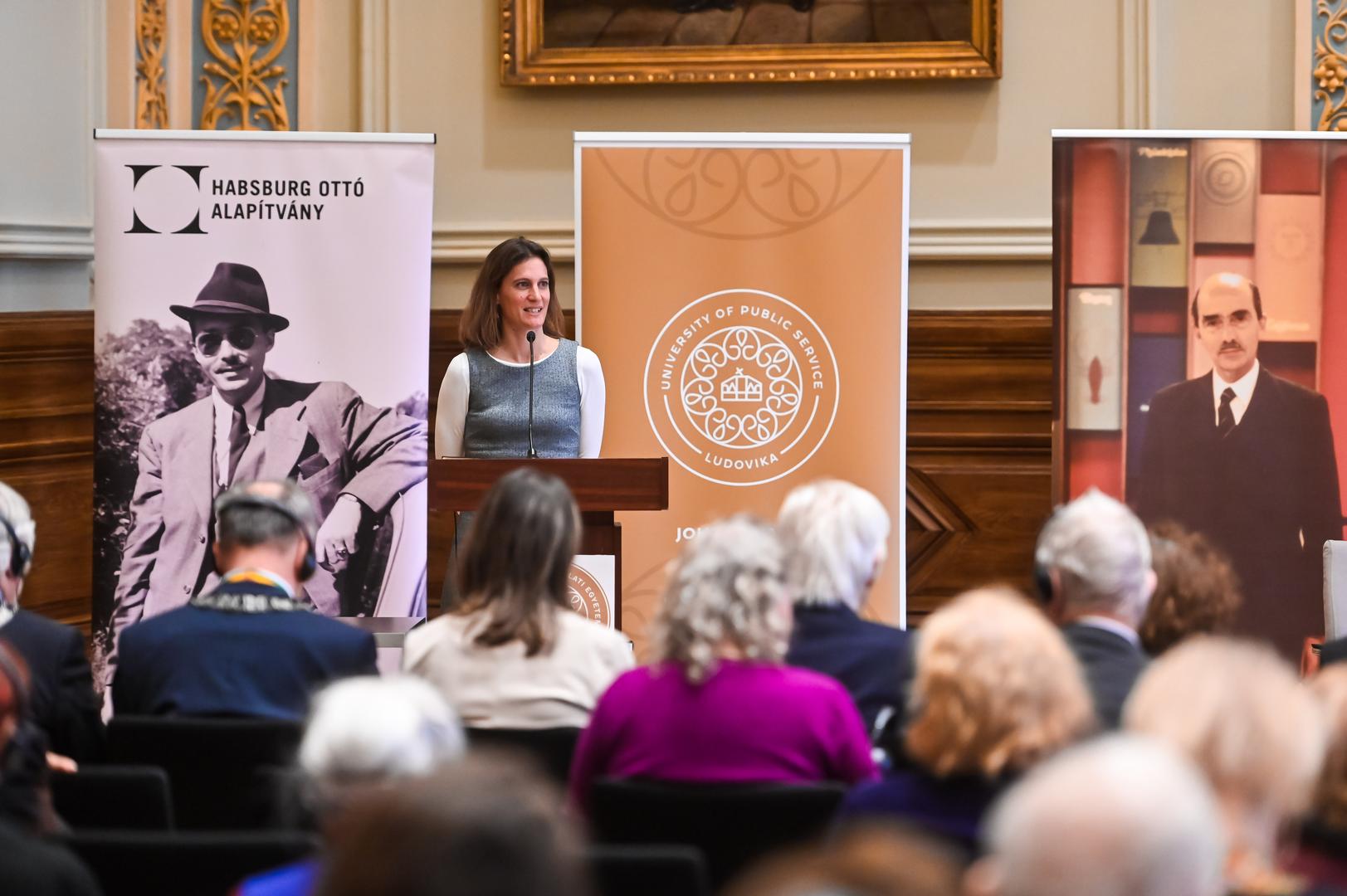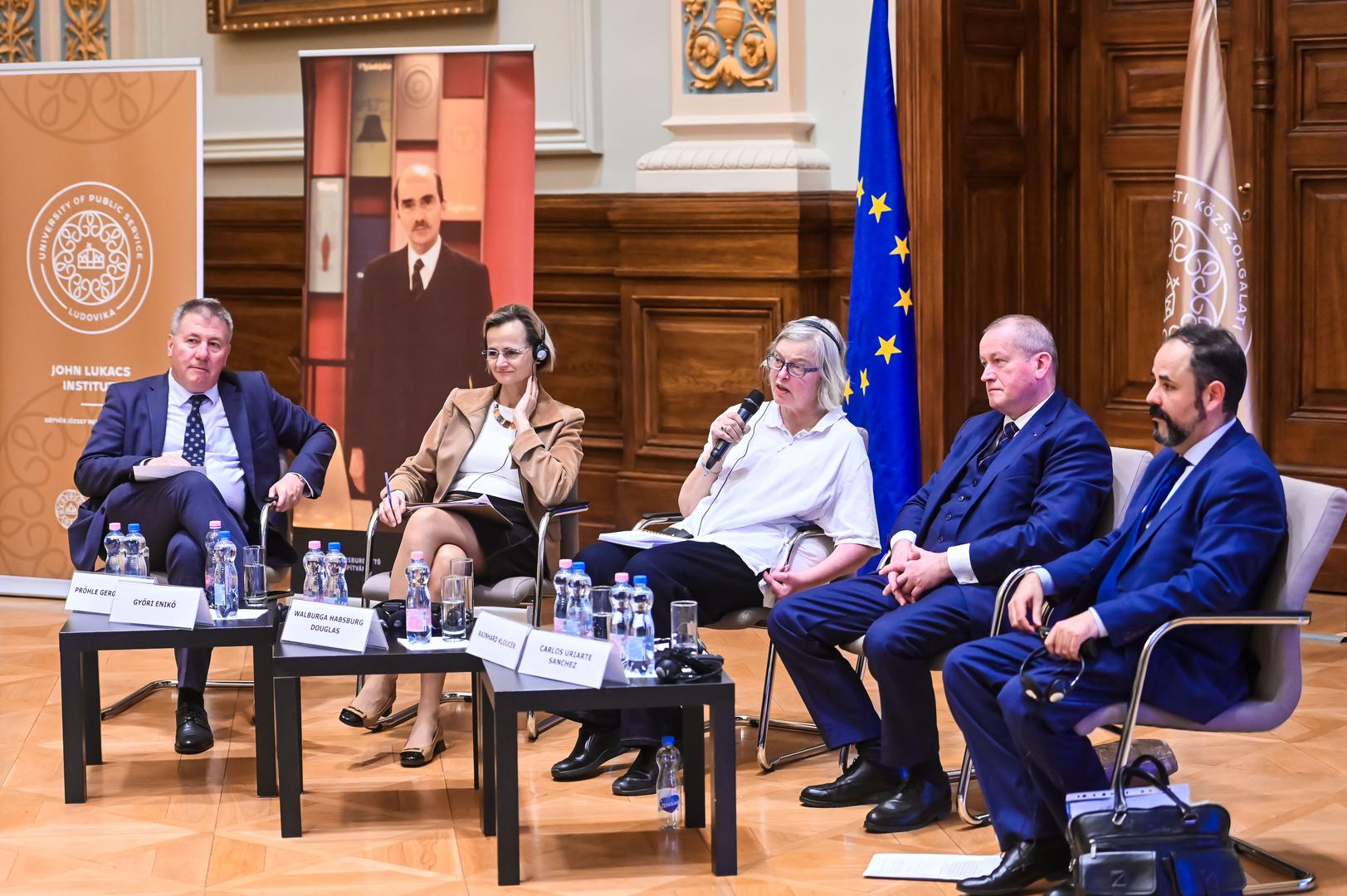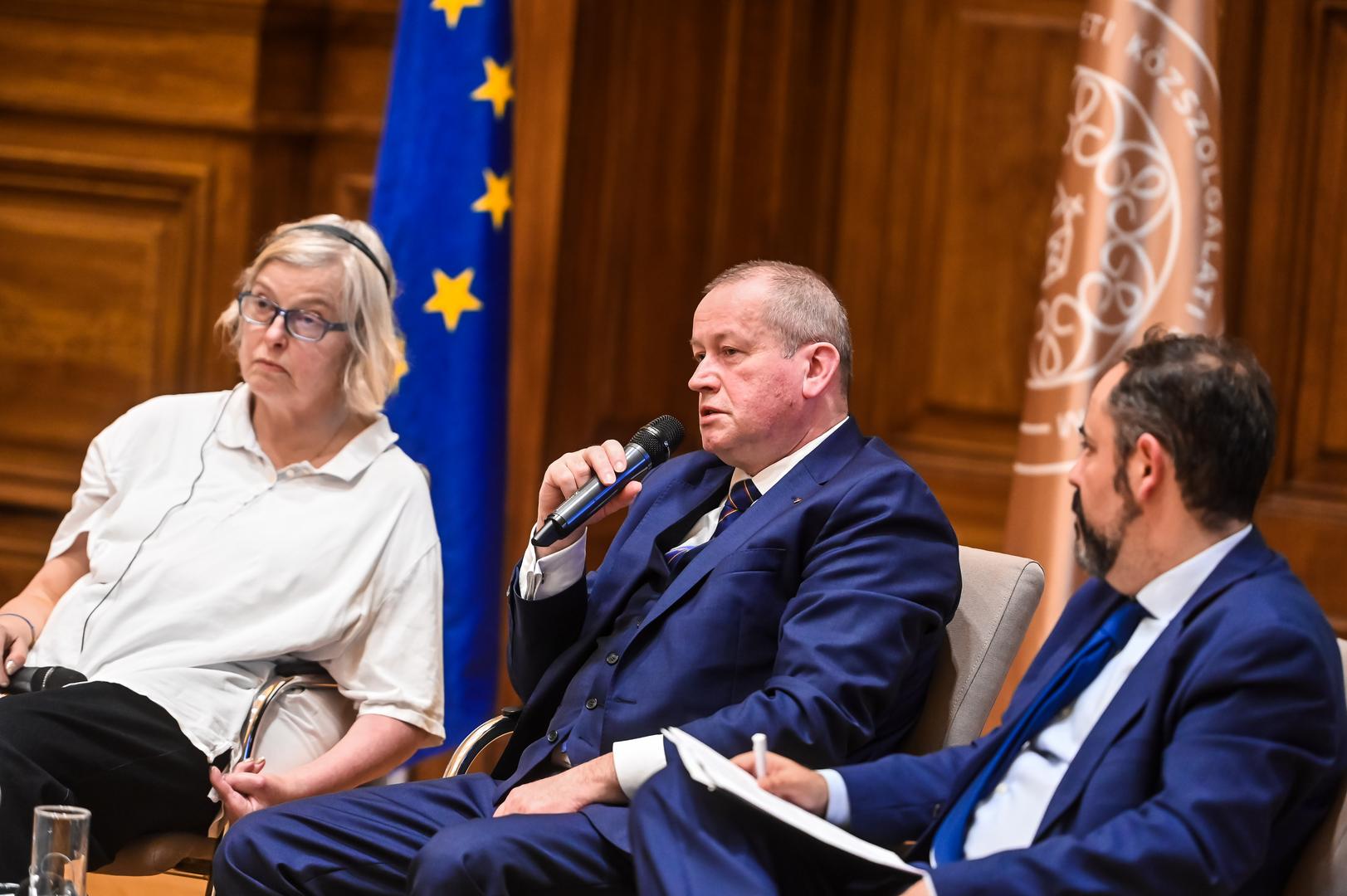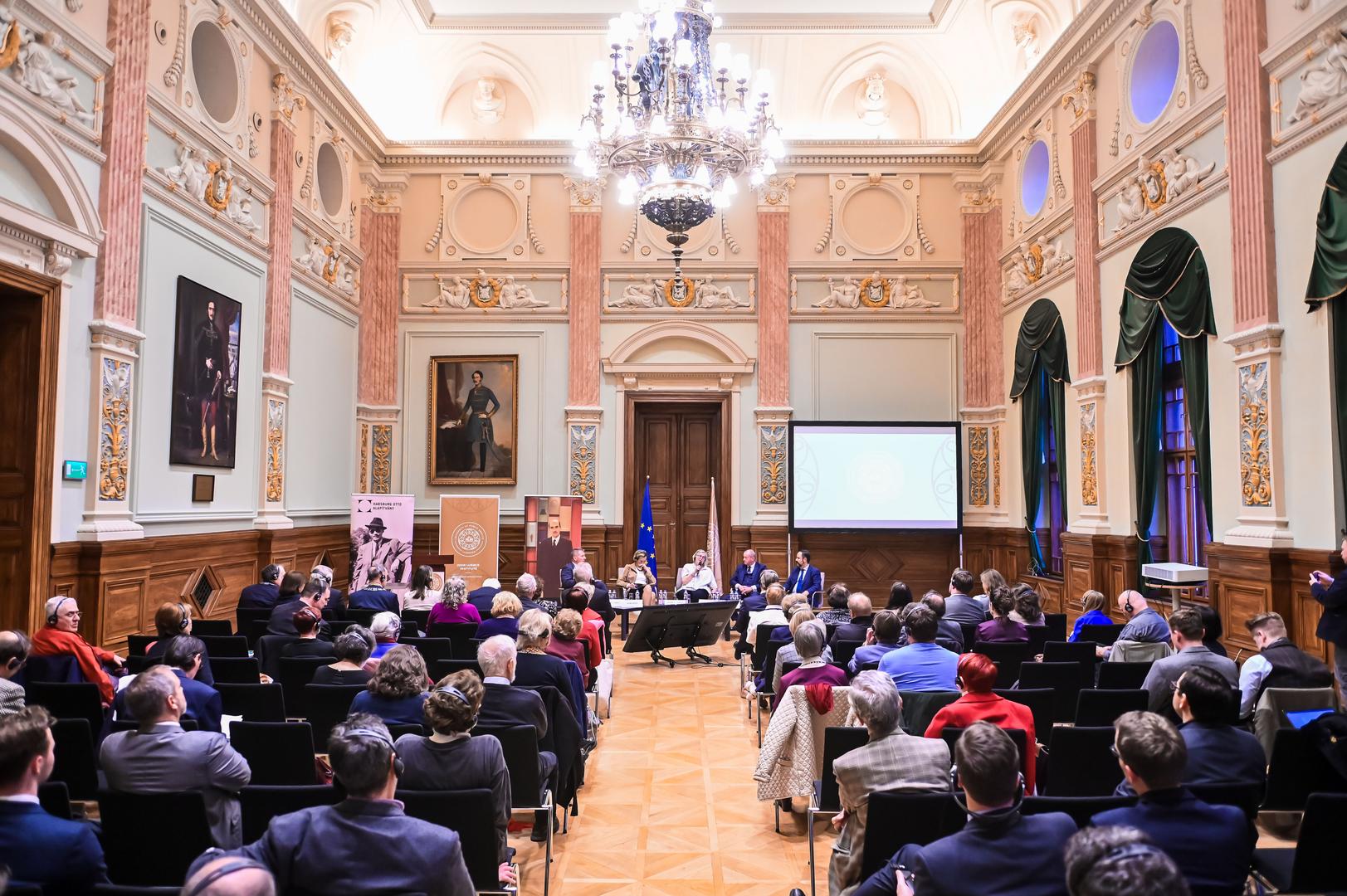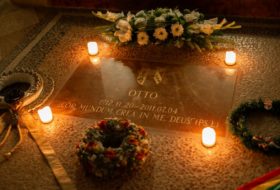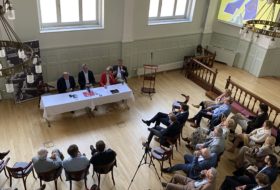We commemorated the appointment of our Foundation’s eponym to the body representing the continent’s nations in the 1979 elections, the first time European countries voted their representatives directly to the European Parliament. This marked the end of a long process that began in the 1930s when Otto joined the Pan-European movement and eventually became its vice president in 1957 and president in 1973. Under his leadership, the International Pan-European Union became an instrumental force for the continent’s unification and actively contributed to the fall of communism in Central and Eastern Europe. Following her father’s footsteps, his daughter, Walburga, is currently the Vice-President of the Union.
Karl von Habsburg and his daughter, Gloria von Habsburg, came to Budapest for the event. The Austrian President of the Pan-European Movement, accompanied by the Austrian and Hungarian leaders of the organisation, visited our Foundation and shared with us some letters written by French President De Gaulle and Austrian Chancellor Joseph Klaus to his father in the early 1960s.
At the afternoon event, Gergely Prőhle, Director of the Otto von Habsburg Foundation, welcomed the guests. The Programme Director of the John Lukacs Institute reminded that the anniversary was crucial in the political history of our namesake because it was the first time in his career that he took part in a democratic election. Such an opportunity is rare in the life of Crown Heirs. However, half a millennium of family tradition enabled Otto von Habsburg to ‘reprogram’ his personal ambitions, and the supranational pan-European ideal opened the way for him to work for the future of the whole continent.
Aline Sierp, a professor at Maastricht University, outlined the broader political context of the 1979 event. She reviewed the beginnings of the institution of the European Parliament in 1951 and detailed the impact of the election campaign and the result on the internal politics of the FRG. She pointed to Otto’s conscious role-building, which he proved by receiving the Robert Schuman Prize (1977) and German citizenship (1978).
During the roundtable discussion, the lessons of the European Parliament’s past and present were analysed, with the intent of providing forward-looking ideas for the institution’s future. Walburga Habsburg Douglas, Vice-President of the Pan-European Union, began by recalling the main political focuses of her father’s politics and his relationship with Franz Josef Strauss. Rainhard Kloucek, Secretary General of the Pan-European Movement in Austria, spoke of the extent to which the ideas of the movement had permeated the European institutions through Otto’s person, notably through his long chairmanship of the Parliament’s Foreign Affairs Committee. Our Spanish guest, Carlos Uriarte Sanchez, Professor of Constitutional Law at the Rey Juan Carlos University in Madrid, explained the responsibilities of his country, the former world empire – which is increasingly pressing and stretching beyond Europe into South America and large areas of Africa.
Participants expressed the most intense opinions in the debate on the common foreign and security policy. They all voiced their belief in a stronger shared policy and echoed Otto’s words of 30 years ago about the threat posed to our continent from the East. In her closing remarks, Enikő Győri, Hungarian MEP, summarised the short-term tasks ahead for the EU institutions in four points: We will only be successful if we can strengthen our economic, political and military forces (for the last five years have been a waste of time in this respect); we must adhere to the principles governing the functioning of the institutions, which have operated the system since its foundation, albeit with some hitches; to renounce our civilisational aspirations, i.e. to judge countries, nations and communities based on ideologies; and, finally, to pledge our faith in the further enlargement of the Union (Western Balkans, Eastern Europe).
NKE photos: Dénes Szilágyi
